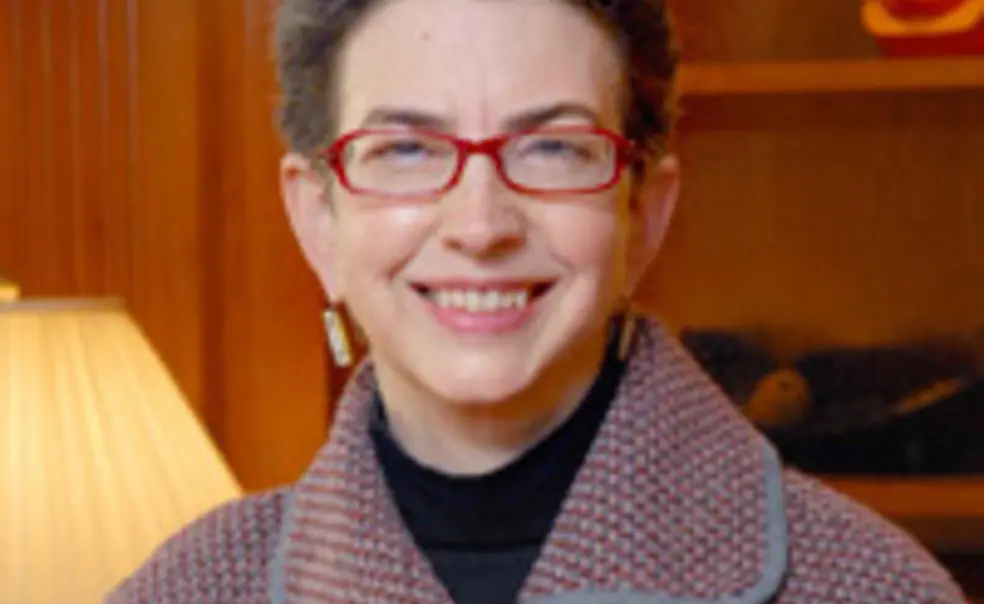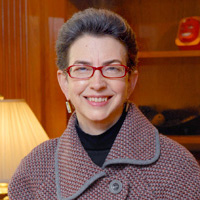Tiger of the Week: Mary E. Miller ’75
The Tiger of the Week is - gasp - a Yalie? Well, not entirely. But art historian Mary E. Miller ’75 made history in New Haven this week, becoming the first woman to be named dean of Yale College. She will take over the post Dec. 1. Miller, an expert on Mayan art and architecture, graduated summa cum laude from Princeton as an art and archaeology concentrator in 1975. She earned her doctorate at Yale, joined the faculty of its art history department in 1981, and has been master of Yale's Saybrook College since 1999. Yale president Richard Levin, in an interview with The Yale Daily News, called Miller "a magnificent scholar, a devoted teacher, and a terrific master." Photo courtesy Yale University Office of Public Relations
Do you have a nominee for Tiger of the Week? Let us know. All alumni qualify. PAW's Tiger of the Week is selected by our staff, with help from readers like you.
No time wasted
In a world where Web surfing and online gaming can consume full days of people's lives, Luis von Ahn has put Internet users to work. The 30-year-old von Ahn, who spoke at Princeton Oct. 8, is one of four Carnegie Mellon computer scientists who, in 2000, invented CAPTCHA (the Completely Automated Public Turing Test to Tell Computers and Humans Apart), a tool that ensures that only humans (and not computers) can use particular Web services, like online registration. The box containing distorted text that you must decipher to complete an online form - that's a CAPTCHA. But when von Ahn realized that humans waste more than 150,000 hours a day solving CAPTCHAs, he asked, "Can we use this human effort for good?" With the release of "reCAPTCHA" in 2007, that is exactly what he did. ReCAPTCHA helps digitize archives by pairing a standard CAPTCHA with a word scanned from an old book or newspaper that is too yellowed or smudged for a computer to interpret its characters. ReCAPTCHA now digitizes 25,000,000 words per day, with Internet users completing work that would have taken 3,500 full-time employees to do. Von Ahn has expanded his idea into online games. His "ESP game" prompts two anonymous players to identify the same image; any matching descriptors are strong potential labels for the image. Five thousand people playing simultaneously can label all the images on Google in just two months - and with human precision. But von Ahn does not want players - particularly students - to waste away their lives on behalf of his cause. "We cut you off [from playing the game] after 10 hours if you come from an .edu domain," he said. By Sarah Harrison ’09
New books: The American Way of War
Documentary filmmaker Eugene Jarecki ’91 turned heads at Sundance in 2005, winning the Grand Jury Prize for his film Why We Fight, an unflinching critique of American militarism from the end of World War II through the war in Iraq. Now, Jarecki has carried the same themes to his new book, The American Way of War: Guided Missiles, Misguided Men, and a Republic in Peril (Free Press), released Oct. 14. Jarecki incorporates interviews with key figures in government and the military, including Sen. John McCain and Col. Lawrence Wilkerson, Colin Powell's former chief of staff, to craft his exploration of America's political, economic, and military systems. Jarecki is scheduled to discuss his work on The Daily Show with Jon Stewart Oct. 20.
Bolton critiques United Nations funding, scope
Former U.S. Ambassador to the United Nations John Bolton called for changes to the U.N.'s structure and scope in an Oct. 13 lecture at Robertson Hall, but he was not optimistic about the international organization's chances for reform. Bolton decried the U.N. practice of "norming," or agreeing on international stances on issues like the death penalty or gun control, calling it an "end run" around legitimate debates in domestic politics. He criticized the corruption of the Oil for Food program and a subsequent lack of accountability. And he defended his rejection of what he viewed as weak reforms of the U.N.'s Human Rights Commission, calling it "one of my proudest moments at the U.N." Bolton said that the most meaningful reform at the U.N. would be to switch its funding from a system of mandatory, assessed contributions to one of voluntary contributions that might encourage responsiveness and efficiency. He noted that voluntarily funded U.N. initiatives such as the World Food Program, UNICEF, and the High Commissioner for Refugees have been relatively effective. "My radical reform for the U.N. is that we should pay for what we want and insist that we get what we pay for," Bolton said. After his speech, Bolton fielded questions from students and faculty, addressing the future of North Korea; the relative merits of regional organizations, including the Organization of American States and the African Union; and the potential for an expansion of the U.N. Security Council. Of the latter, he said that many countries have legitimate arguments for permanent inclusion on the Security Council, but a council of 23 or 24 representatives, instead of the current 15, would be a "prescription for gridlock."













No responses yet